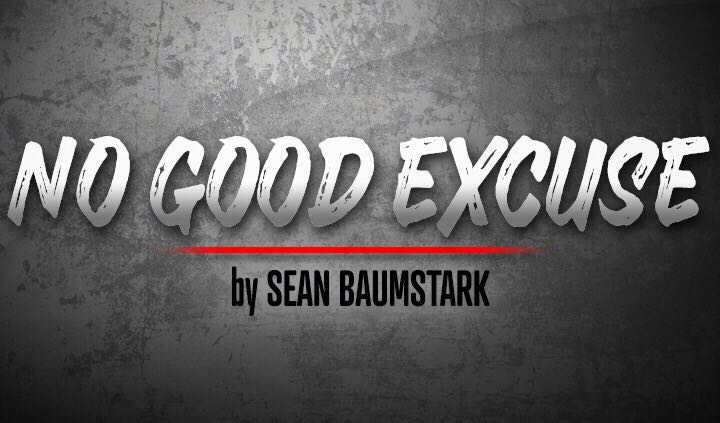The Balancing Act of Health and Limitations
Written by |

I love productivity. I have a strong disdain for being passive, or slow to move. If something needs to be done, I like to get after it quickly.
There is certainly nothing wrong with moments of rest and relaxing activities. I enjoy a good movie and a slow, meditative bike ride along the river. However, I find it necessary for me to keep moving, keep pushing, and keep working on a daily basis. This is currently presenting a mental and emotional challenge for me.
I’m not sure if it’s strategy or stubbornness, but even in the face of an energy deprivation disease, I often push myself to the limit. I pride myself on getting things done in a timely manner and not resting until my to-do list is all checked off. In fact, I once maintained a personal blog titled “Get Stuff Done,” which focused on an anti-passive approach to the duties of life.
Lately, I’ve been forcing myself to pay attention to my body and to be more aware of what it needs, especially when it’s begging for rest. As the effects of Friedreich’s ataxia (FA) continue to progress in my body, I can sense the need for increased rest. I can feel my balance is a little more jeopardized, and I’ve noticed I stumble a little more for no apparent reason. My body tires quickly, my mental clarity fades more easily, and my emotional energy wears faster.
Some days, I feel like a human contradiction. In one situation I promote the notion of avoiding excuses for how I invest my time and my attention. In another situation, I tell myself to go to bed early or to forfeit my visit to the gym. I suppose the post I wrote titled, “Learning to Be Satisfied with Our Reasons,” is still fresh on my mind and challenges my approach to my days and to my health.
I imagine such a struggle is just as prevalent for others living with a progressively deteriorating body. How do I balance the things I want to accomplish against the need to respect my health and some of its limitations? I’m not sure there is an easy, one-size-fits-all answer, but I am convinced that simply being mindful is a start. Be mindful of what you want to do and of your own limitations.
Such limitations should help us draw up “how-to” plans — how to exercise, how to travel, how to visit loved ones — not a list of things we can’t do. For me, I know I’ll need a strong dose of rest on my day off, so my to-do list may be fairly short for that day. It certainly won’t be nonexistent.
I may need to employ some life hacks to accomplish what is important to me, and I’m OK with that. I want to be somebody that gets stuff done, one way or another. I don’t want to be someone who just talks about getting things done.
Some days may be harder than others, but isn’t that true in life? On the road of life, things will always pop up that tend to slow us down or even stop us in our tracks. The opportunity we all will have is the chance to either turn around and go back or choose another route.
I may not always be able to follow the route I intended, but I still want to arrive at the intended destination. It’s important that we keep our “eye on the prize” and consistently pursue what is important to us. It’s equally important to be prepared to discover our own limitations and be OK with working around them. I think of limitations like gutters at the bowling alley. My bowling ball often ends up in the gutter. When this happens I miss the pins, but my ball still arrives at the same destination as planned.
I’m eternally optimistic, so even in the face of FA, I believe the best is yet to come. My health will always present limitations, so my job is to find a way to function and accomplish things within the boundaries of those limitations.
Some days are easier than others. I would love to hear how you balance your desire to accomplish things with the limitations you are up against. I welcome your input in the comments below.
***
Friedreich’s Ataxia News is strictly a news and information website about the disease. It does not provide medical advice, diagnosis or treatment. This content is not intended to be a substitute for professional medical advice, diagnosis, or treatment. Always seek the advice of your physician or another qualified health provider with any questions you may have regarding a medical condition. Never disregard professional medical advice or delay in seeking it because of something you have read on this website.






Jane Briscoe
Hi Sean, wonderful blog. I feel the same way and at 67 I have still not found the answer. Right now I am writing this and wondering if I can get the washing hung out before it is time for my partner to drive me to the beach so I can meet my support worker to take our dogs for a walk. Love the bit about loss of emotional energy. Always considered myself emotionally resilient, now it takes very little to reduce me to tears. Yes, mindfulness is good, plus I find I now need 9 hours sleep a night to ensure I am behaving like a civil human being. Regards Jane
Sean Baumstark
Hi Jane - thank you for reading and sharing your experiences! I especially appreciate your comment on rest. I too am learning more and more that my rest is essential for safe (and civil!) daily functions. I'm glad to hear that you are getting things done and figuring some of it out as you go!
-Sean